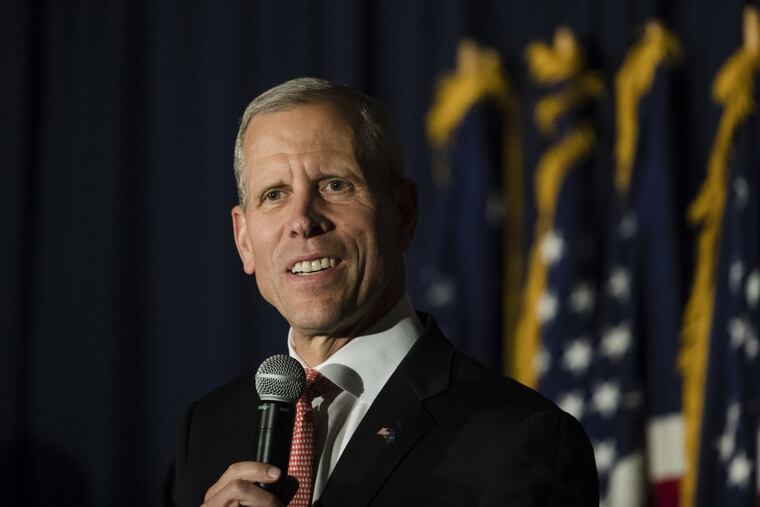Three actions to make health care more affordable and accessible in Pa.
Pa. must reconstitute high-risk pools, give consumers information to make value-based choices, and urge people to commit to healthy behaviors.

Open enrollment for the 2018 Obamacare exchanges begins this week in Pennsylvania, and there is growing evidence that the legislation continues to fail miserably.
Here are the sobering facts facing Pennsylvanians: In just the last three years, the average exchange premium has increased more than 100 percent; the average deductible more than 20 percent, in some cases exceeding $12,000 per year for a family; the number of health insurers participating has declined by more than 35 percent; and thousands of Pennsylvanians no longer have a choice of insurers, as there is only one option.
And these figures mask some of the even more disturbing disruptions imposed by the Affordable Care Act: the loss of access to one's doctor, having to drive much farther to a hospital that accepts one's plan, and the inconvenience of having to switch insurance plans for three or four consecutive years.
What a disaster.
Paradoxically, the ACA focused on expanding coverage without addressing affordability. Indeed, it exacerbated the affordability challenge by demanding that "10 essential benefits" be included in all health plans, though most of these benefits violated the most basic purpose served by insurance: to cover random, infrequent, catastrophic events outside the control of the individual.
Additionally, by trying to "socialize" medical risk across all age groups, genders, and health conditions within each state exchange, with limited premium variation, Obamacare accomplished precisely what was predicted: It drove the "good risk" out of the exchanges and became a magnet for those suffering disproportionately from advanced or chronic disease. If one is heavily subsidized and relatively sick, the exchanges remain a bargain. For those in the middle class struggling to make ends meet, the exchanges have become a nightmare.
As governor, I would focus principally on three actions making health care more affordable and accessible for Pennsylvanians:
Reconstitute high-risk pools, but with far greater provider intervention and management. Frequently, 10 percent to 15 percent of the population often consumes 60 percent to 70 percent of all health-care costs. We have developed amazing treatments for advanced disease over the last two to three decades, but they often cost more than $100,000 per year to administer. This advanced care is often delivered in a nonintegrated fashion, and the reimbursement system disfavors the most efficient venue for patient care, leading to excessive costs and suboptimal outcomes. A more efficient approach would be to separate these expensive beneficiaries from the general risk pool (thereby lowering the cost of premiums dramatically for the remaining 85 percent to 90 percent) and put them under the care of our most advanced providers, using a fixed-rate reimbursement system encouraging the delivery of much more efficient care. Pennsylvania's advanced providers have the technology and know-how to do this today.
Give consumers on high-deductible health plans the information they need to make value-based choices. Within the exchanges, it is common to have plans with annual out-of-pocket obligations exceeding $12,000 for a family. Yet the price for something as simple as a lab test or X-ray may vary by more than 300 percent in the same market. This "price dispersion" suggests a market failure, and that failure is the lack of information necessary for responsible consumers to make value-based decisions. To protect these consumers, we need to make price, quality, wait times, and patient satisfaction much more readily available and comparable. In other sectors of the economy, this not only leads consumers to better deals but forces the inefficient suppliers to either innovate rapidly or exit the market. We need the same in health care.
Recommit ourselves to healthy behaviors and a focus on wellness. Much of our disease today is a function of one's social context, induced by unhealthy behaviors, or both. Only a small percent of our total costs comes from either congenital or contagious disease. Accordingly, we have the ability to dramatically reduce our health-care costs by focusing on healthy behaviors. Physicians claim that even a loss of 10 pounds for someone overweight can lower blood pressure, reduce the probability of diabetes, and improve mobility. If we could focus on better nutrition, exercise, and a reduction in substance abuse alone, we would make great progress. But influencing these behaviors goes well beyond the scope of our health-care system today. It would require a much more integrated approach, including our education system, agricultural community, transportation system, and social services organizations.
Bringing affordability and accessibility back to our health care is within our grasp. Washington will not solve this problem for us. It is time we took control of our own destiny and addressed the three issues above. With more than 25 years in the health-care sector, working with health systems throughout the United States and in many countries, I am uniquely qualified to lead this effort as your next governor.
Paul Mango is a Republican candidate for governor of Pennsylvania. @MangoforPA info@mangoforpa.com